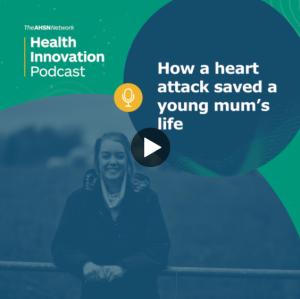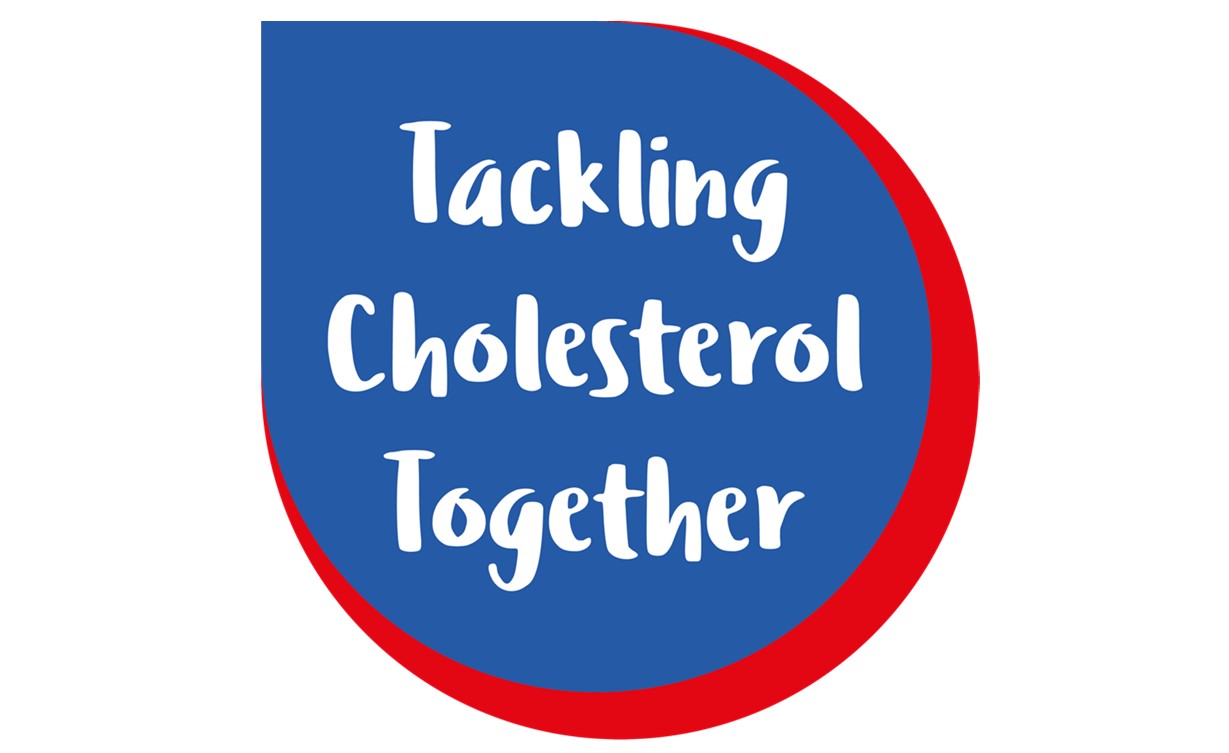Cardiovascular disease (CVD) is the single biggest condition where lives can be saved by the NHS over the next 10 years, according to the NHS Long Term Plan. CVD affects around seven million people in the UK and is responsible for one in four deaths in the UK; that’s more than 160,000 deaths each year, with more than 40,000 people under the age of 75.
Despite up to 80% of CVD cases being attributed to modifiable risk factors, CVD remains the leading cause of morbidity, disability and mortality in England and is among the largest contributors to health inequalities. A report funded by Health Innovation East and delivered in August 2022 in partnership with the University of Cambridge found that more deprived areas tended to have a higher prevalence of all CVD conditions, reflecting the impact of the wider determinants of health on CVD outcomes.
Health Innovation East is commissioned by NHS England to help address the identification and prevention of conditions linked with cardiovascular disease (CVD) across the East of England. If we want to address health inequalities, then cardiovascular disease prevention is a great place to start. That’s why we are working to help improve the detection, management and optimisation of high-risk conditions related to CVD, optimising blood pressure and minimising the risk of myocardial infarction and stroke across the region. For more information about our work in cardiovascular disease prevention, please contact Nick.Pringle@healthinnovationeast.co.uk, or cvdteam@healthinnovationeast.co.uk
CVD training and resource repository
CVD training and resource repository
This section is for healthcare professionals or colleagues working and aiming to improve the cardiovascular health of our population. Here you will find a toolkit full of training, resources and materials to improve your understanding and skills on CVD prevention.
Visit our training repository.
Blood pressure
Blood pressure
High blood pressure is the leading modifiable risk factor for heart and circulatory disease in the UK with an estimated 28% of adults in the UK having high blood pressure. However, it is estimated that at least half of those who are diagnosed are not receiving effective treatment and up to 4.8 million remain undiagnosed.
Health Innovation East has been supporting the Blood Pressure Optimisation Programme over the last 12 months. Our primary focus has been to support primary care networks (PCNs) to implement the UCL Partners Proactive Care Frameworks, that help to manage long-term conditions, such as high blood pressure.
The frameworks prioritise clinical activity by stratifying patients who are at the highest risk, deploying the wider workforce to reduce workload for GPs and improving personalised care for patients.
Over 600 PCNs in England are now using the UCLP Proactive Care Frameworks for blood pressure management and optimisation. You can access the National BPO Impact Report for 2022/23 here or read about our impact with Great Yarmouth & North Villages Primary Care Network through the BPO programme here.
Interactive, informative online workshops are available for all health care colleagues interested in using the frameworks. The 60-minute session will explain what the frameworks are and how to make the most of the implementation workbooks to start using the frameworks most effectively. You can book onto a session here.
Lipid management
Lipid management
Lipids are fats in the blood, including fatty acids and cholesterol, which are key factors in heart disease. High blood cholesterol increases the risk of heart and circulatory diseases, and it can be caused by lifestyle choices, genetics, and other factors.
The danger lies in the fact that high cholesterol often goes unnoticed without clear symptoms, emphasising the importance of regular check-ups.
The aim of lipid therapy is to decrease the risk of heart disease by lowering harmful cholesterol levels. Healthcare professionals recommend lifestyle changes like a low-fat diet, exercise, and weight loss. If these changes aren’t enough, medications may be prescribed. Treating high cholesterol significantly reduces the chance of cardiac events, and Health Innovation East collaborate with local healthcare services to enhance lipid management in our region.
Our work includes:
- Raising awareness of the importance lipid optimisation.
- Supporting education and upskilling local healthcare professionals including awareness of resources including clinical pathways and guidance.
- Supporting effective population health management approaches.
- Enabling equity of access to novel therapies.
- Piloting case finding tools and tackling health inequalities.
Familial hypercholesterolaemia (FH)
Familial hypercholesterolaemia (FH)
One of the causes of CVD is inherited (genetic) conditions. These are conditions which can be passed on through families, affect people of any age and may be life-threatening. One of these is a condition called familial hypercholesterolaemia (FH) which causes extremely high cholesterol levels and is estimated to affect around 1 in 250 of the UK population. Without treatment, FH can lead to heart disease at a very young age and people with undetected FH are four times as likely to have a heart attack or stroke than the general population.
Unlike most genetic disorders, FH is entirely treatable, especially given the widespread availability of lipid-lowering medicine. Therefore, detection is key. Health Innovation East is working with the NHS to support the targets outlined in the NHS Long Term Plan to increase FH detection from the current levels of 7% to 25% by January 2024.
Areas of work
- Increasing the detection of FH via a population health management approaches.
- Developing and embedding genetic pathways for FH.
- Implementing the FH child-parent screening pilot across the East of England, in which children are tested for the condition in routine immunisation visits to their GP. If they are found to carry an FH gene, both parents and siblings are then tested to determine if they also have the condition.
- Supporting digital family history tools.
- Supporting upskilling of Healthcare professionals via the Northumbria University remote FH module.
Atrial fibrillation (AF)
Atrial fibrillation (AF)
Atrial fibrillation (AF) is one of the most common forms of abnormal heart rhythm (arrhythmia) and a major cause of stroke.
Around 1.5 million people in the UK have been diagnosed with atrial fibrillation. It is estimated that there are at least 270,000 people aged over 65 with undiagnosed (or silent) atrial fibrillation in the UK and around 1 in 8 people are not treated effectively. (1)
Detecting AF early and making sure people are given optimal treatment – usually blood-thinning medication to prevent clots (anticoagulants) reduces the risk of stroke by two thirds. (3)
In 2022/23 we worked with Suffolk and North East Essex Integrated Care System and the University of Essex to evaluate the acceptability and feasibility of identified patient groups at West Suffolk Foundation Trust self-monitoring for atrial fibrillation. You can now read the impact story and full evaluation report. For more information, contact ben.jackson@healthinnovationeast.co.uk.
Through the Innovation for Healthcare Inequalities Programme (InHIP) Health Innovation East is supporting two integrated care systems (ICSs) in our region to address health inequalities, with a focus on AF detection and optimisation.
Suffolk and North East Essex
In partnership with Suffolk GP Federation, Suffolk and North East Essex ICB will initially target a small number of practices to further refine the process of identifying, effectively engaging and optimising treatment for people who have already been diagnosed with Atrial Fibrillation.
The focus will be on clinically reviewing and supporting those with an AF diagnosis who are not currently receiving optimised treatment. The project will look to understand reasons for non-optimisation to share learning into the future.
Herts and West Essex
Hertfordshire and West Essex ICS will be working through primary care networks (PCNs) in their most deprived areas. They will engage with local voluntary, community, faith and social enterprise organisations (VCFSE’s) to co-develop a community outreach approach to raise awareness of AF in black, Asian and other ethnic groups through in primary care settings. It is hoped that this will improve detection and subsequent management with direct oral anticoagulants (DOAC’s) where appropriate.
Stroke
Stroke
A stroke is a serious life-threatening medical condition that happens when the blood supply to part of the brain is cut off.
Health Innovation East is currently hosting the East of England Stroke Forum until July 2025, with the aim to convene healthcare professionals from across the region with a specific interest in stroke services. The aim of the forum is to nurture, develop and sustain a community of knowledgeable professionals competent in meeting the needs of individuals affected by stroke in the East of England.
Heart failure
Heart failure
Heart failure (HF) is a common complex clinical syndrome of symptoms and signs that occur when the heart is unable to pump blood around the body as effectively as it should, and tends to gradually get worse over time. HF can occur at any age but is most common in older people. It is caused by structural or functional abnormalities of the heart and usually occurs because the heart has become too weak or stiff. Whilst it cannot usually be cured, with appropriate medication the symptoms can often be controlled for many years.
The NHS Long Term Plan [4] states that 80% of HF cases in England are diagnosed in hospital, despite 40% of patients having symptoms that could have triggered an earlier assessment in primary care. Looking ahead, hospital admissions due to HF are projected to rise by 50% over the next 25 years – largely due to ageing of the population (5).
Our Health Innovation East team is pleased to be delivering the NHS National Heart Failure Programme to support with increasing timely diagnosis and optimised treatment for HF patients, with an aim to reduce HF burden, tackle health inequalities and improve health and wellbeing at a population level.
Please find learning and resources on our repository page, and if you would like to be involved in our project please do get in touch. Additionally please visit the heart failure charity, Pumping Marvellous.
Cardiovascular disease inequalities in the East of England
Cardiovascular disease inequalities in the East of England
Stark inequalities exist in health outcomes, with both higher cases and higher deaths in socioeconomically disadvantaged and minority ethnic groups across England. Cardiovascular disease (CVD) is a primary driver of these health inequalities, and the COVID-19 pandemic is likely to have compounded both the burden of CVD as well as related health inequalities.
The University of Cambridge and Health Innovation East have collaborated to create a report that sets out an approach to inequalities, outlines the inequalities in CVD across the East of England and describes how equity-focussed quality improvement in primary care could be used to address them.
We are pleased to be able to share two summary documents following on from this report: Cardiovascular disease evidence briefing and a How-to guide: equity-focused quality improvement. It is hoped that these will provide insight and a practical solution for primary care to help address inequalities in CVD.

Sign up to our CVD newsletter
If you are a healthcare professional, join our mailing list by filling in your details below.
References
- https://www.bhf.org.uk/-/media/files/research/heart-statistics/bhf-cvd-statistics—uk-factsheet.pdf
- David S Wald et al. (2018). Integration of child–parent screening and cascade testing for familial hypercholesterolaemia. Journal of Medical Screening. 26(2) [Online]. Available at: https://journals.sagepub.com/doi/10.1177/0969141318796856.
- Martinez C, Katholing A, Wallenhorst C, et al. (2015) Increasing incidence of non-valvular atrial fibrillation in the UK from 2001 to 2013. Heart 2015;101:1748–1754
- NHS Long Term Plan. Available from: https://www.longtermplan.nhs.uk/wp-content/uploads/2019/08/nhs-long-term-plan-version-1.2.pdf
- National Clinical Guideline Centre. Acute heart failure: diagnosing and managing acute heart failure in adults. NICE clinical guideline 187. London. National Clinical Guideline Centre, 2014. Available from: http://guidance.nice.org.uk/CG187
You might also like…
Related work
Listen to the podcast

Share your idea
Do you have a great idea that could deliver meaningful change in the real world?
Get involved



